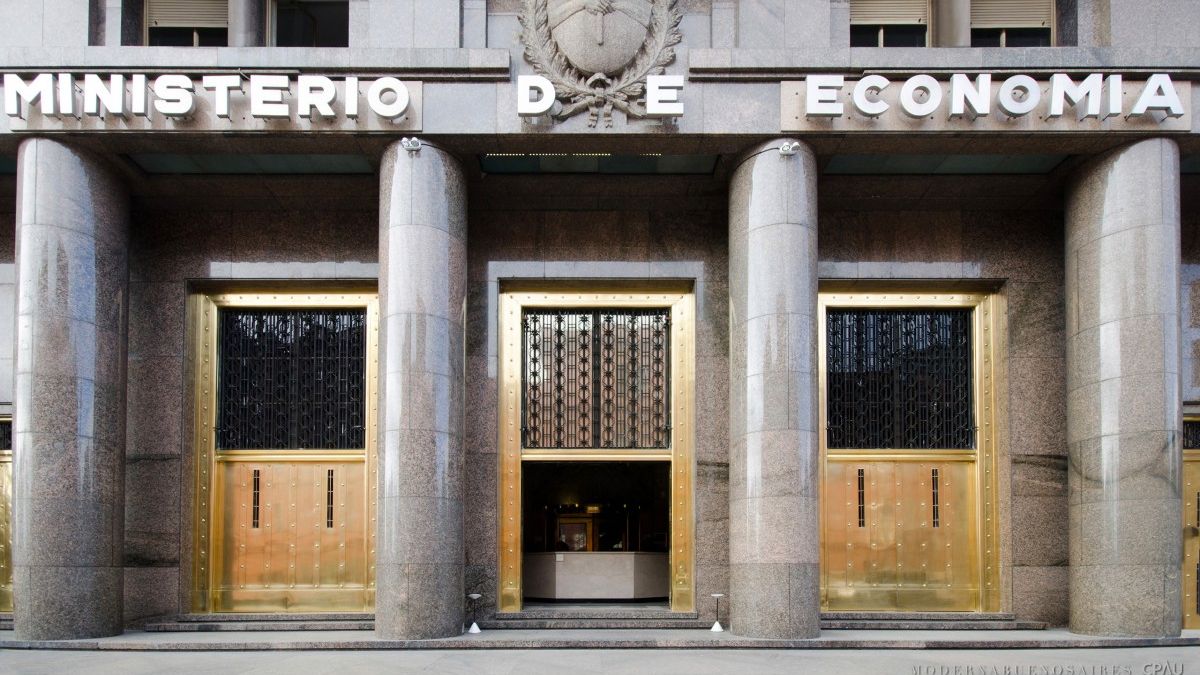“Inflation will probably remain high, with or without increases in regulated prices. The problem there is that the rate does not continue to be delayed so much because it complicates fiscal matters,” he said. Joaquín Waldman, economist and CONICET-CEDES researcher.
Martín Kalos, Director of EPyCA Consultants consulted by Ambit, He assured that in the fiscal area “for now there are no big improvements because the point to improve is and continues to be energy subsidies. As long as that does not change, there will be no improvements.”
For the economist, the rate increase “is going to have an impact on monthly inflation by a few points.” In this sense, he marked the government’s difference between two sectors: “it is clear that there is a part of the economic team that knows that it wants to rationalize subsidies and that it knows that subsidies cannot continue to be increased indefinitely and another part raises energy subsidies as a flag because they still do not have a proposal on how to recover income”. In this framework, he proposed that the resources obtained by the reduction of subsidies be used “not only to save them but that they can be used to reinforce the income of the most deprived households or in all case to develop infrastructure in a federal manner which would help sustain a little better the income of the hardest hit population”. The commitment with the IMF was to reduce subsidies by 0.6 percentage points so that the primary deficit of 2.5% of GDP is met.
Inflation
As projected by different consultants, the food sector grew strongly again, while for the coming months lower data could be expected, although with a “floor” of 4%. In fact, the Minister of Productive Development, Matías Kulfas, announced days ago that “April inflation is not good.” And, in relation to the March figure (6.7%), he maintained that it was a “blow” to the economy: “Because we have our own problems and international inflation has also been added, which is hitting the whole world. ”. In this sense, a factor that is of main relevance for what will happen in May is the “boom” of increases in regulated services.
Among them, the two 9.5% increases for internet, fixed/mobile telephony and cable and satellite television rates to be applied in May and July stand out. It also adds the increase in LNG of around 15%, which will have an impact on gasoline. In the last hours, an increase in prepaid of 8% was also authorized in May and private schools in the Province of Buenos Aires were added.
With this panorama of increases, it is almost impossible for inflation to stop being high in the first semester. “We are still talking about high levels, around 4.5% and 5% of monthly inflation, but obviously the way to reduce it is gradual, but we have to start walking it. But any aggravation that begins to generate an expectation that inflation this high on a monthly level is consolidating as something permanent, would be a problem in the future, “added Kalos.
unexpected rent
Martín Guzmán announced a kind of “new IFE” for the most unprotected sectors of the population to cushion the harsh impact of inflation. At the time that he communicated the measure, he hinted that it will be financed with the proceeds from the “unexpected rent” of higher incomes. However, doubts persist in the market due to the delay in the project. According to him, Guzmán will go ahead with the idea but not through a law – to prevent it from being rejected – but through the AFIP.
IMF and Central Bank reserves
The Government will also receive the first review of the agreement with the International Monetary Fund (IMF) in mid-May. From the economic team led by Martín Guzmán, they discount that in mid-May some US$4.15 billion will enter the reserve coffers, which will serve to cancel the maturities of the debt with the agency for US$3.8 billion scheduled for next June, and the rest to continue accumulating foreign currency and meet the goals of the program. The Minister of Economy, Martín Guzmán, stated in different business forums, both in San Carlos de Bariloche and in Neuquén, that “the first review will focus on the dynamics of the first quarter of the year, and those goals in the fiscal part, in the external and monetary part have been achieved”, he affirmed.
However, the key point will be the reserves. During April, the Central Bank managed to buy only 160 million dollars. It is worth remembering that the program with the IMF contemplates a goal of accumulating net reserves for the year of US$5.8 billion. Analysts estimated that the guideline for the first quarter of the year was achieved “with little margin” despite the record harvest and that it was achieved by the disbursement that the IMF made at the end of March. “In the first quarter of the year, although the goal was met, the primary deficit grew compared to last year. The financial deficit also”, added Joaquin Waldman.
“So far in the first quarter, the BCRA practically did not accumulate reserves. Neither in April. That has to start showing an improvement in May because otherwise the pressures on variables such as the price of the official exchange rate will begin. If the BCRA is going to have to demand more dollars in the second half of the year to comply with what was agreed with the IMF, that is going to set a bad expectation for the second half of the year,” said Martín Kalos.
Growth and social claims
In the last few hours it became known that the piquetero movement is organizing a massive three-day march for next week to claim the government’s economic policy. It will begin on May 10 and will end on Thursday 12. After the camp that led the Minister of Social Development Juan Zabaleta to rule out increasing social plans, social organizations consolidate their demand for a better distribution of wealth.
Among the slogans is the request for genuine work, an increase in wages and pensions until reaching the basic basket. The truth is that the purchasing power of the population is still in the red. Against the maximum of November 2017, the loss of purchasing power of wages it is 22.9% average. In the case of workers informal, the real drop reaches 33.7%. This was stated in the latest report from the LCG Consultant.
In February, the general level of wages showed a real drop of 1.5m/m, deepening the drop of 1.4pp compared to January (-0.1% m/m real). In the case of non-registered private sector workers, they experienced a real drop of 2.4% m/m and public sector workers 2.2% real m/m. Registered wage earners suffered a real contraction of only 0.8% m/m in their purchasing power. In this sense, bonds and parity increases with an acceleration of inflation do not seem to be enough.
“Social emergencies are not statistics, we will not have poverty or employment but it is felt in the claims and needs of social organizations and people in the neighborhoods who are in need of a response in terms of income policies and that prices begin to stabilize so that any income policy that is made is not eaten away by inflation that remains too high,” added economist Martín Kalos.
Growth is a factor to watch in May. This month, INDEC will release key data on how the economy is doing: construction, wages, industry, economic activity and trade balance. This will allow “to know if indeed the zigzagging that is being seen in the first part of the year, already with a more languid growth than the previous year, can consolidate something more stable or if we are going to a year with lower growth.”
Source: Ambito
David William is a talented author who has made a name for himself in the world of writing. He is a professional author who writes on a wide range of topics, from general interest to opinion news. David is currently working as a writer at 24 hours worlds where he brings his unique perspective and in-depth research to his articles, making them both informative and engaging.




